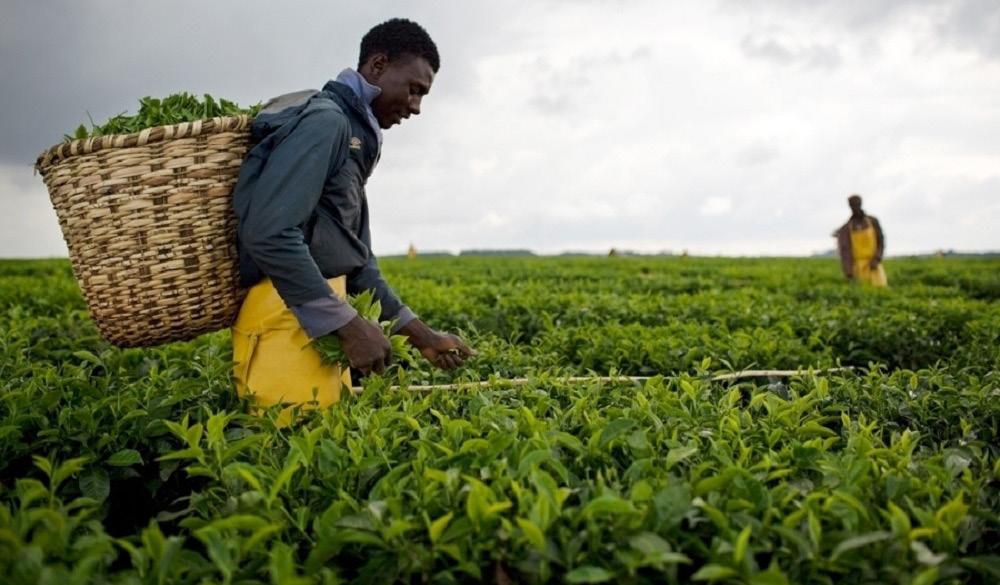
3 minute read
Tea farmers reprieve as KTDA dismisses new rules
Tea farmers reprieve as KTDA dismisses new rules Tea farmers at work
By Clarence Imbayi. A week after the Agriculture Cabinet Secretary Peter Munya released Tea Industry Regulations 2020, the Kenya Tea Development Agency has dismissed the rules as unconstitutional. In a letter to the ministry, KTDA termed some of the rules as punitive, adding that the Agriculture and Food Authority (AFA) has been given too much power that will result in bureaucratic tendencies, thus stifling the sector’s growth.
Advertisement
The rule 10 (7) requires a factory to have 250 hectares of planted tea before renewal of their licenses; a requirement KTDA says will pose challenges to factories. “The rule implies that farmers must give up land to the factory.
This is unconstitutional since it interferes with an individual’s right to own property,” said KTDA.Rule 10 (12) requires a tea manufacturer to build a factory within three years of issuance of a license, or risk losing the permit.
According to KTDA, this means farmers will not have enough time to accumulate the needed equity to build satellite factories making the spirit and intention of this regulation punitive. KTDA director Mr. Paul Ringera, a director at Githongo Tea Factory, said some of the rules are good but cautioned that some would work against the sector.
“The ministry should exercise caution so that farmers who are being protected are not disadvantaged. For instance, the rule requiring factories to procure transport services through AFA will render our drivers jobless,” Ringera said in a telephone interview. Regulation 10 (19) states that before a factory is issued with a license, it will have to satisfy AFA that it has a policy providing for competitive procurement of goods and services including, but not limited to fertilizer, machinery and equipment, warehousing and transportation of tea. Yet according to KTDA, if the rule comes into force, the management of factories will be interfered with.
“AFA will have to approve procurement of fertilizers, machinery, equipment, transporting and warehousing of tea. Procurement will not be centralized and factories will have to make their arrangements for procuring farm inputs and will thus not enjoy the current economies of scale, which will be expensive,” the agency noted.
While KTDA is directed to pay farmers 50 per cent of the value of tea delivered in factories, direct sale of tea is outlawed, with all tea produce required to be auctioned at the Mombasa auction managed by the East African Tea Trade Association. If the views by KTDA are considered, farmers’ rights to own their lands and tea will have been protected.
In contrast, the rules appear to benefit small scale farmers in that the buyers will pay in full for all teas they win at the auction, before they take custody and lift the tea for export. The funds from the sale, shall be remitted directly to the respective factory accounts within 14 days from the auction date.
Factories will be required to deposit at least 50% of the funds to farmers’ accounts within 30 days from receipt of proceeds, with the balance being paid as a bonus within the same financial year.
Kenya Tea Sector lobby chairman Irungu Nyakera announced that good tidings are on the way. “This is a step in the right direction and the tea sector has another chance, to be a leading source of foreign exchange and a major employer in Kenya,” said Mr. Nyakera in a statement. “These regulations, will help close loopholes that East Africa Tea Trade Association has failed to implement for years, exposing the Kenyan tea industry to exploitation by cartels, to the costly loss of farmers,” he added.
KTDA is owned by 54 corporate tea companies that have expanded by setting up 15 satellite factories, bringing the number of factories under smallholder farmers to 69.
The regulations come following President Uhuru Kenyatta’s directive to the Agriculture CS Peter Munya on December 14, 2019, to oversee radical policy and structural reforms to the tea sector. These follows an outcry by over 600,000 smallholder farmers spread across 16 tea growing counties in the country.
The regulations focus on ringfencing farmers’ income, instilling corporate governance and an overhaul of the leadership structure in KTDA, subsidiaries, and factories.










